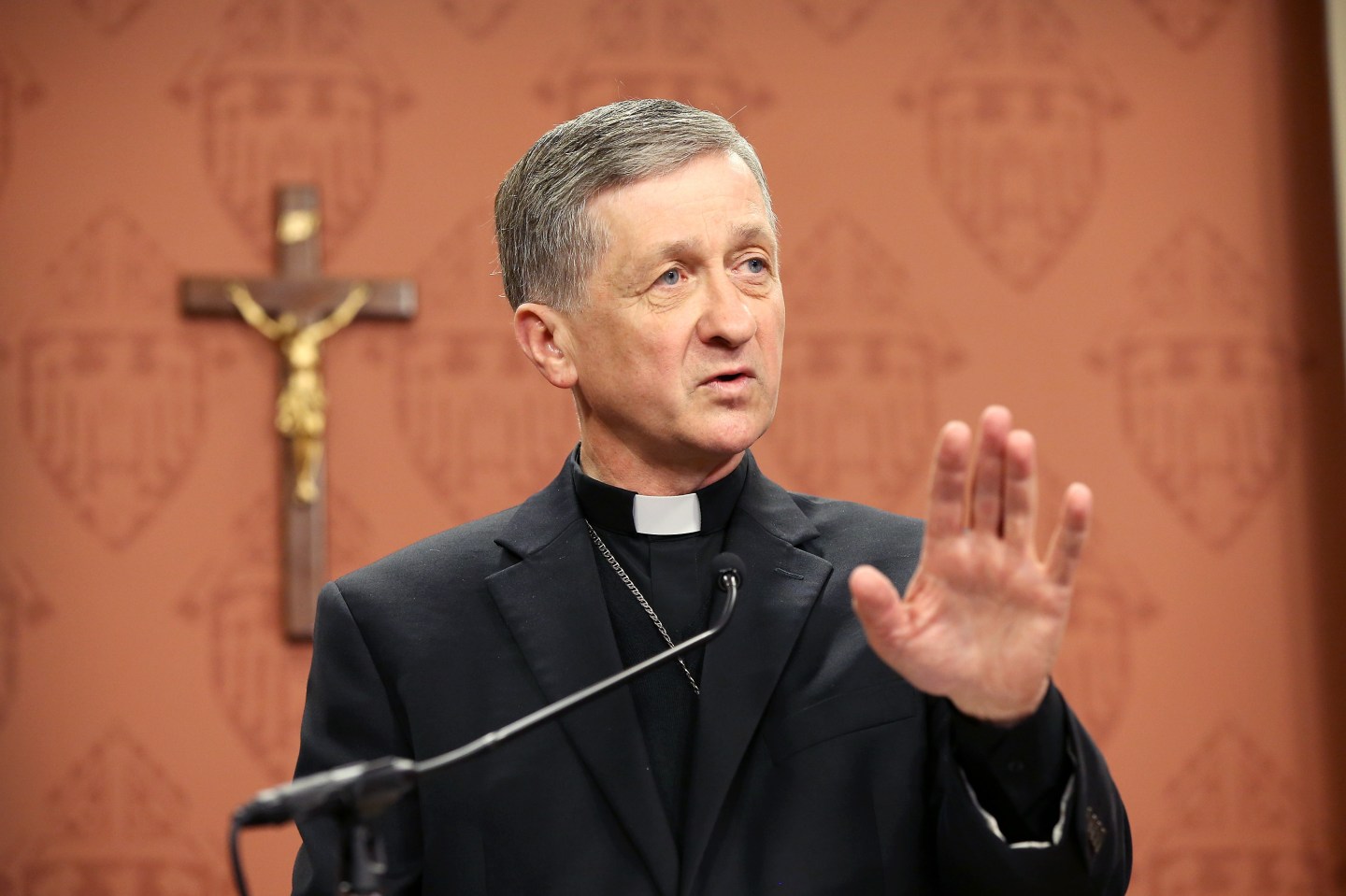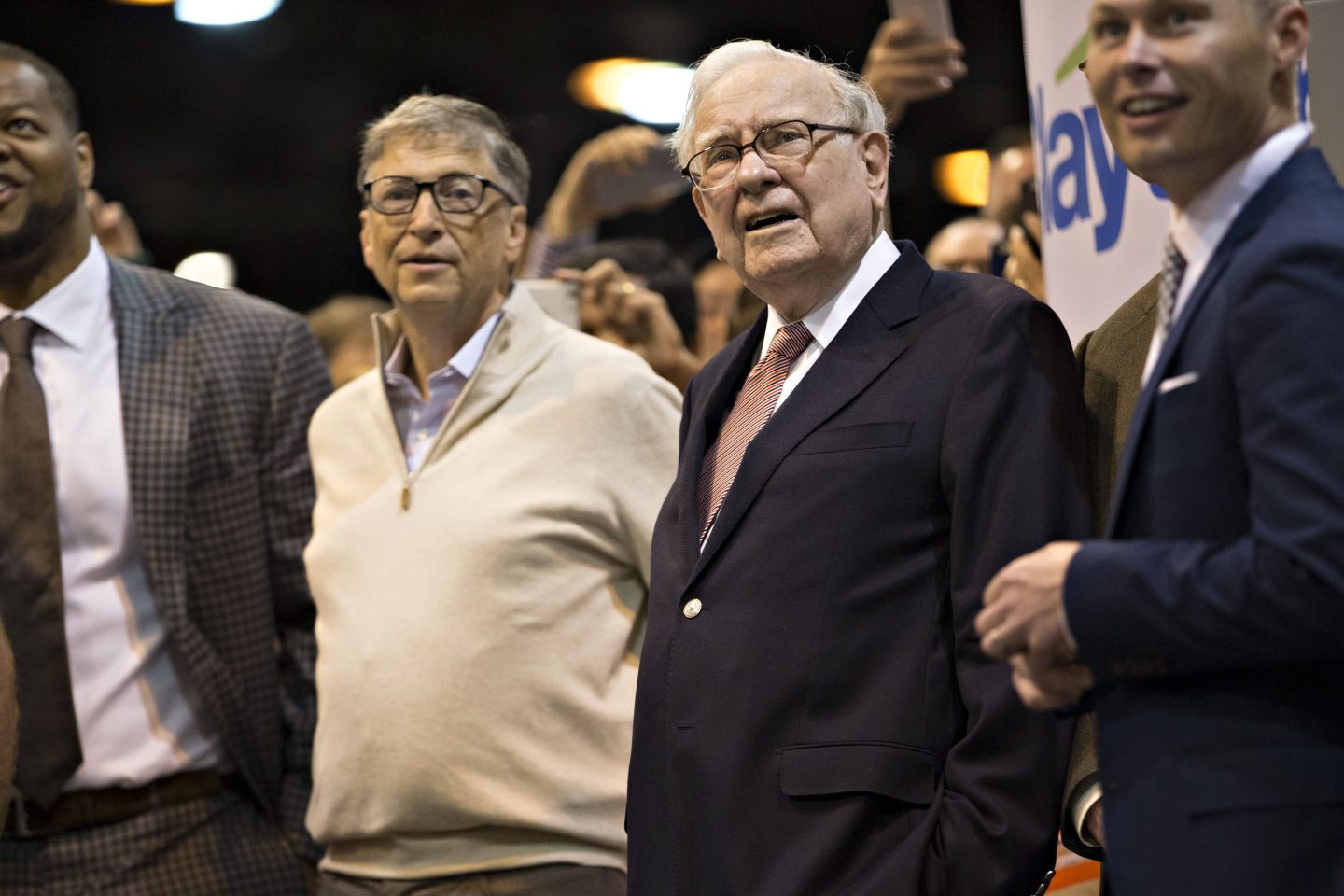The rap on Blase Cupich is that he’s a Pope Francis kind of guy. Which is to say that he’s politically moderate, opposed to the lavish lifestyle that some of his peers have formerly embraced (in Spokane, his post since 2010, he lived on a seminary campus and owned no furniture), and has what is often referred to as “a heart for the poor.” In his few public remarks since the Holy Father tapped Cupich to be the new Archbishop of Chicago beginning in November, he has been understandably muted about the task before him. He was chosen “to serve the needs of the people,” Cupich said at a press conference, characterizing his role more as “pastor” than as “messenger.”
But Cupich’s role encompasses far more than that. He will lead 2 million Catholics in the third-largest diocese in America. And Cupich is the Pope’s first leadership choice among the four most important posts in the American church – the archbishops of Boston, New York, Washington, and Chicago. His elevation signals where Pope Francis intends to take the American church.
A look at Cupich’s past shows exactly what kind of leader he is, and the magnitude of the job he is about to undertake. Cupich, 65, is a budget-minded leader who believes passionately in the obligation of the haves to contribute to the betterment of the have-nots.
People who know Cupich say he has a particular genius for bridging gaps between rich and poor, for helping America’s wealthiest Catholics see themselves as belonging to a single religious community, which includes business titans as well as the homeless, the chronically poor, and millions of undocumented immigrants. Cupich, in other words, will be the Archbishop who might model ways to address the agonizing national problem of income inequality.
The ascension of Cupich is important not just at the level of optics — Francis’s first major American appointment, a rearranging of public priorities away from hot-button political issues and toward more pastoral ones – but because after years of sex-abuse scandals and culture wars, American Catholicism is at a crisis point and Cupich is in a position to try to fix it.
More than 50 years ago, when John F. Kennedy was elected president, American Catholics were a more homogeneous crowd. They were predictably white, predictably working or middle class (with a strong affiliation to the labor movement), and they predictably voted Democratic.
Now Catholics defy categorization. They are rich and poor, Democrat and Republican, progressive and conservative, for and against gay marriage and abortion rights. (During his tenure in Spokane, Cupich drew criticism for asking parish priests not to protest outside abortion clinics.)
Of the two million Catholics who inhabit the Chicago Archdiocese, a few, such as the billionaire Reyes brothers, who own the largest beer distribution company in the United States, are among the country’s wealthiest people. But a far greater number are poor, and a growing percentage of Catholics, in Chicago and in the country, are Hispanic.
Depleted by sex scandals and a widespread disillusionment with traditional religion, the coffers of the church have been bare; in 2012, the operating budget of the Archdiocese of Chicago ran a defiict of more than $70 million, according to documents posted on its website; enrollment at Catholic schools has been declining in Chicago as elsewhere. Meanwhile, the people who lead the church continue to be white men raised in the Kennedy-era – a culture clash, for sure.
Cupich has a record of tackling all of these issues. Between 2004 and 2007, he was chair of the vocations commission at the U.S. Conference of Catholic Bishops, a group that more recently spearheaded a large research project into the number of Hispanics entering religious life.
When he arrived in Spokane in 2010, the diocese was bankrupt and he has reduced the deficit through belt-tightening and a realignment of priorities, preaching a message of self-sacrifice for long-term good; now, the diocese is on track to pay down its debt seven years early, says its development director Andy Robideaux. In 2010, when Cupich arrived, the debt was just under $4 million dollars and amortized until 2028 – with some loans carrying 7 ½% interest rates.
At the end of this fiscal year, the only debt left is internal Church-related at no interest, and that amount is $150,000.
“He’s a budget conscious leader,” Robideaux says. “His message is: ‘I’m going to do my part, and you’re going to do your part.”
In 2011, Cupich helped to launch the Nazareth Guild, a philanthropy aimed at funneling private dollars into the Catholic schools there with the explicit goal that no Catholic school in Spokane will ever be forced to close for lack of funds.
And while a vocal segment of conservative bishops went on a rampage against Obamacare, saying it compromised Catholic moral values, Cupich supported it. “The Archbishop came into my office and said ‘Rob, you sign up as many poor people as you can for that health plan,” remembers Rob McCann, the director of Catholic Charities in Spokane. In the end, McCann and his staff signed up more than 40,000 people for Obamacare, with Cupich’s express endorsement.
In addition, Cupich vocally supports immigration reform with his belief that giving undocumented workers legal rights will improve their individual lives as well as the broader economic health of the country.
Cupich’s fans say his brilliance comes from a deep understanding of Catholicism as a unifying force, and not a splintering one. He is a bishop who takes off his collar once a week to work anonymously in a soup kitchen and knows the names of hundreds of the homeless men and women who live in and around Spokane.
He said mass to hundreds of undocumented migrant workers in the wake of the wildfires there last summer. “He drove three hours, and said an outdoor mass at a camp. Then he stayed for hours afterward. It was pitch black by the time he left,” says McCann.
At the same time, he has a unique ability to “sit with wealthy people, a little bit to the right, a little bit conservative, who may not always agree with how he thinks about things – and still get them to write a giant check,” McCann says. (In particular, McCann remembers a donor adamantly opposed to immigration reform who was nevertheless moved to give generously to the diocesan appeal.)
In a country polarized by difference, Cupich will try to convince all the Catholics under his care that they are one. And Chicago, famous for its tribes and factions, will be a proving ground for the Archbishop’s God-given talents.
Lisa Miller is a staff writer at New York magazine. She is the former religion columnist for the Washington Post and former senior editor of Newsweek magazine.












